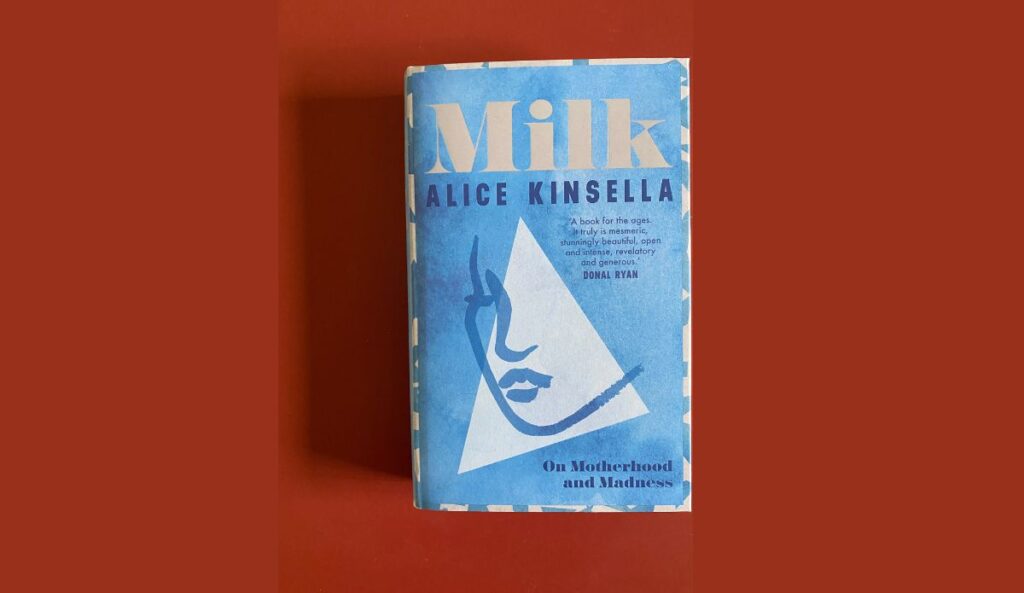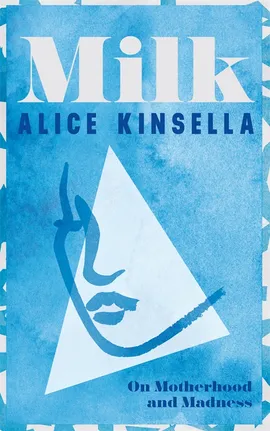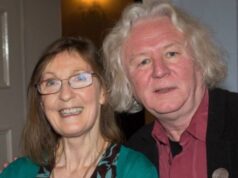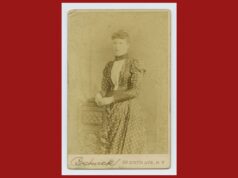
Milk: On Motherhood and Madness|Alice Kinsella|Picador|€13.99
Milk—time and structure are let loose in a genre defying book destined to become a cult classic
by Laura King
From its opening pages, Milk: On Motherhood and Madness, already feels like the kind of cult classic that will in time be passed from friend to friend, pressed into hands earnestly, taking hold of readers’ hearts.
Milk will soon take up its rightful place alongside other recent personal non-fiction from Irish women such as Emilie Pine and Doireann Ní Ghríofa. However, Kinsella carves out her own space within this recent niche, writing frankly and thoughtfully about what it is to be a new mother in Ireland right now: post mother and baby homes, post the eighth amendment, and concerned with how the pressures of social media and the anxiety about climate change impact new parents.
Time
Kinsella’s writing deftly draws the reader into the murky waters of time in new motherhood. This book could be described as memoir, essay, or non-fiction—but more important than the genres it defies, it is the story of a new mother and baby, told in non-chronological vignettes or fragments over the span of eighteen months: from conception, through to birth, to when the baby is nine months old, titled with the months before or after birth.
Time and structure are let loose from meaning in this new life for the woman and her baby, and that freedom makes for a very unique reading experience.
At the end of the book’s timeframe the speaker explains that she can no longer write about this son in this way, because they have ceased to be the one unit together, “motherandbaby” or “motherbaby.”
Jumping back and forth in time, the passages are disjointed and at first seem vague, mimicking the confusion and sleeplessness the mother feels. In many cases, the format takes the shape of a thought followed by bullet points developing this same theme.
Memory and recording
We know that the writer (who may be, or may just resemble, Kinsella) is finding it difficult to work, and write poetry, and this repeated formula feels true to someone trying to find their way back to writing through journaling and drafting.
Perhaps the most striking theme is Kinsella’s preoccupation with memory and recording.
She calls the mother the keeper of memory and family history, which is something that is passed through the female line, unlike a father’s second name.
The speaker wants to record for herself, as she doesn’t trust her own memory, but also in defiance of older parents who romanticise this fraught, stressful time now that time has passed, referring fondly to “hope in the struggle.” Even more so, she wants her son to grow up and “know [we] loved our days with him so much, we wanted to live them twice.”
Madness
The book is subtitled “On Motherhood and Madness”, and indeed a significant amount of time is devoted to mental illness and the difficulties of getting help with this in Ireland, especially once coupled with how people feel they are not listened to while pregnant or have a new child.
However, by the end of the book the madness part of the subtitle felt unsuited, perhaps because I felt I had become assimilated to this new way of language and lived this experience alongside Kinsella.
I also genuinely felt that the extremes of emotion, the anxiety and the dark preoccupations and intrusive thoughts were an understandable and almost sensible reaction to such a huge life event, and it helped me understand a little of this experience.
This book doesn’t read like a chronicle of madness—but a beacon for new parents who feel they are completely alone.













